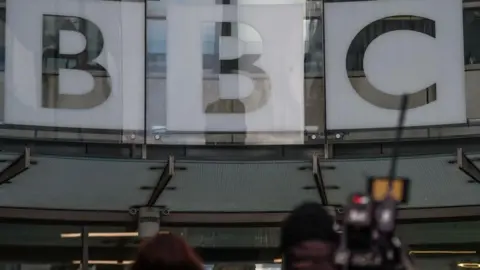The recent BBC workplace review, which was commissioned following significant controversies surrounding high-profile figures like Huw Edwards, aims to address and eradicate negative behaviors within the organization. Samir Shah, the chairman of the BBC, clearly expressed his discontent with the existing cultural issues during a recent address, stating, “If you think you’re too big to live by the values of this organisation, you are wrong, and we will find you out.” His compelling message signals a commitment to deep-rooted change, yet questions linger regarding the effectiveness of these initiatives in practice.
The ‘Respect at Work 2025’ report aims to build a more supportive and accountable work environment, a necessity highlighted by past scandals, including the notorious case of Jimmy Savile, which exposed severe lapses in the organization’s ability to handle misconduct. The earlier review from 2013 similarly revealed that some individuals were deemed “untouchable” due to their status, causing colleagues to hesitate before voicing concerns for fear of reprisal. Following those revelations, then-director general Tony Hall initiated reforms intended to foster a culture of zero tolerance for bullying and enhance confidentiality for those reporting misconduct.
Fast forward to the present, current director general Tim Davie echoed this sentiment, stating his firm commitment to ensuring all staff feel empowered to speak up against misconduct. He emphasized that complaints will be taken seriously, as long as they are not malicious in nature, and pledged to create an environment free from the fear of professional backlash. This pledge includes new measures such as a revised code of conduct, stricter disciplinary protocols, and leadership training aimed at promoting a healthier work culture.
Despite these intentions, an undercurrent of skepticism remains regarding the actual implementation of these changes, particularly in an organization where power dynamics are complex. Prominent figures such as popular presenters wields immense influence, which may intimidate less powerful staff members, including freelancers. Alarmingly, around 30% of the freelancers surveyed reported witnessing inappropriate behavior, and less than half felt secure enough to express their concerns.
The backdrop of this review is compounded by an evident imbalance of power, further complicated by the specific case of BBC news and current affairs, where only 48% of surveyed staff believed that bullying and harassment were adequately addressed by the organization. This raises critical doubts: will employees, particularly those in vulnerable positions, truly feel that their complaints will be addressed without negative repercussions? The fear of retaliation from colleagues, especially superiors, remains a daunting obstacle.
While some staff members express satisfaction with their work environment, the report identifies recurring names as individuals who are purportedly not being held accountable for inappropriate behavior, suggesting that systemic issues persist. This introduces a pressing question: will the proposed cultural overhaul genuinely yield tangible consequences for those accused of misconduct?
The ambiguity of whether past offenders will now face scrutiny points to a significant challenge for the BBC. The validation of these new policies will ultimately hinge on whether colleagues feel secure enough to file formal complaints against individuals typically regarded as problematic. Without transparency, there is a pervasive risk that issues will remain hidden, allowing a toxic culture to thrive.
In addressing the nuances of workplace interactions, Davie has acknowledged that not all inappropriate behavior manifests as overt harassment or assault. Many issues arise from less clear-cut situations, such as rude remarks or aggressive communication, which can also contribute to an unhealthy work environment. The goal is to address such behavior before it escalates, thereby reshaping the organizational culture from the ground up.
Interestingly, although the review was catalyzed by the Edwards scandal, his name was notably absent from its pages, illustrating perhaps an attempt to steer the focus away from individual offenses and towards collective cultural healing. The true measure of whether these initiatives will succeed may depend on whether they can prevent future scandals, fostering an environment where respect and accountability take precedence over silence and fear. Ultimately, for the BBC, the success of this endeavor lies in its ability to create a lasting positive change, ensuring such reviews become obsolete with time.



